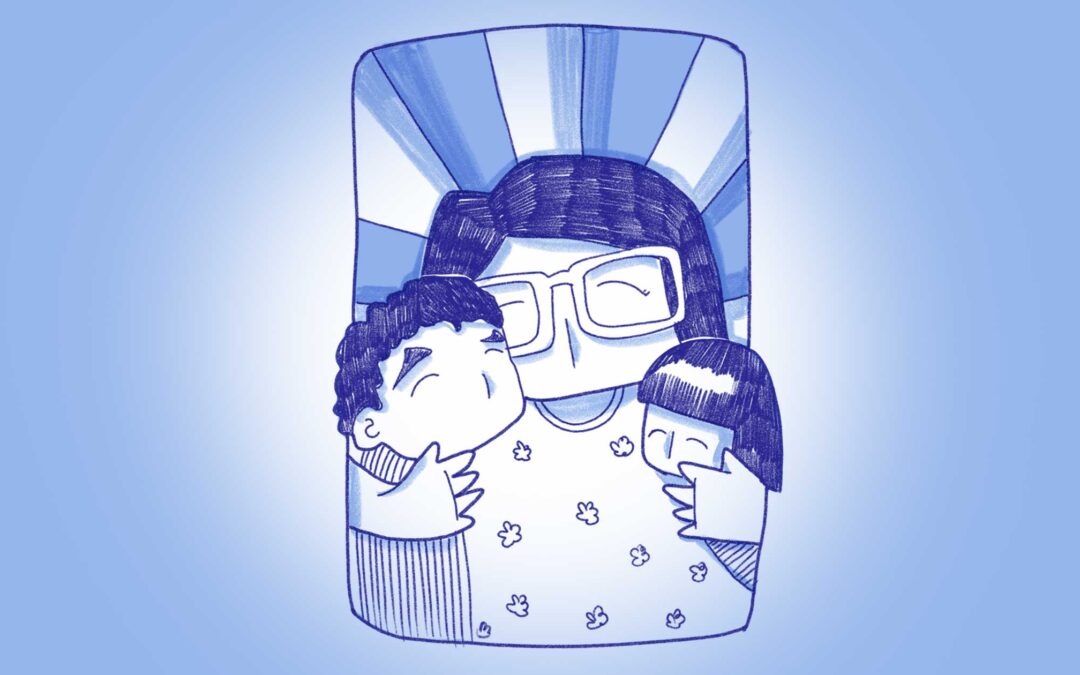Friendship is a magical experience when you’re a kid. Suddenly you’ve got a playmate who’s with you through thick or thin, at least for the two hours you’re on the playground. You belong to a group with imaginations just as active as yours, and the desire to go wherever your hearts take you.
Case in point: Have you ever dropped your child off at preschool or daycare?
If so, do you remember that first time?
You probably cried a bit, or your child cried, or everybody was crying. No matter how it played out, it was a unique experience. Placing your child in the care of a teacher, surrounded by new people, not in the comfort of their home can be a difficult transition.
But it can also be really amazing.
Before you knew it, they’d made some new friends. Suddenly your life was swamped with birthday party invites and playdates, new names and new stories, and you were watching your little one clasp hands with his new bestie and take off on yet another grand adventure.
Early childhood friendships are rewarding for many reasons.
- They boost social and developmental skills. As friendships are formed, so too is the ability to communicate thoughts and feelings to people who don’t know you yet. In order to communicate personal stories, ideas, plans and schemes, your child must naturally stretch and refine their abilities. Early childhood friendship is also where your child begins to gain first-hand knowledge of social norms and expected behaviors.
- Early childhood friendships are also subtle self esteem boosters. If someone likes you enough to want to spend time with you, then you must be doing okay! Positive interactions and social support from friends provide children with a sense of belonging, acceptance, and validation.
- When your child interacts with her friends, they are also taking early steps toward independence. It’s not as though she still doesn’t rely on you, rather she’s able to break away from time to time and slowly figure out who she is. You may not want to think about it too much at this early time, but independence and self-reliance are skills you really want your child to have as they move toward adulthood.
- Friendships also bring out sympathy, one of the most important skills in human interaction. As your child interacts with other children from different places, countries and family situations, he’ll also gain an understanding of how he sees the world and experiences it.
- Early childhood friendships are also the groundwork for future friendships. The seeds for all interactions and relationships your child will encounter in the future, and how he reacts to them, are being planted before your eyes. He’s developing the skills necessary for establishing and maintaining relationships, such as communication, trust, and empathy.
And, yes, some days you can and should be your child’s friend. Some days she may feel lonely, or in need of inspiration, or simply wanting a playmate… and that’s gonna be you! But, when it comes to interactions with peers, your encouragement and support of healthy friendships will have a lasting positive impact on all friendships, and relationships, to come.
A great way to encourage friendships and the importance of positive interaction with peers has always been through board games, but another way is art projects! Creativity is collaborative and, in the same way you encourage your child to craft stories out of the colorful images on her Twibbles gear, creating something from nothing inspires interactions and fosters friendships.
So organize a painting party (even if it’s just you and your child sometimes) Collaborative art projects inspire open communication and create an organic shared experience around the kitchen table. Creating a mural or a group painting encourages children to share ideas, cooperate, and work together creatively.
Making new friends in adulthood may be difficult, but children make friends almost instantly, and it’s important to encourage them, while also instructing them on what healthy friendship looks like.
In short, friendship is so much more than just fun!

